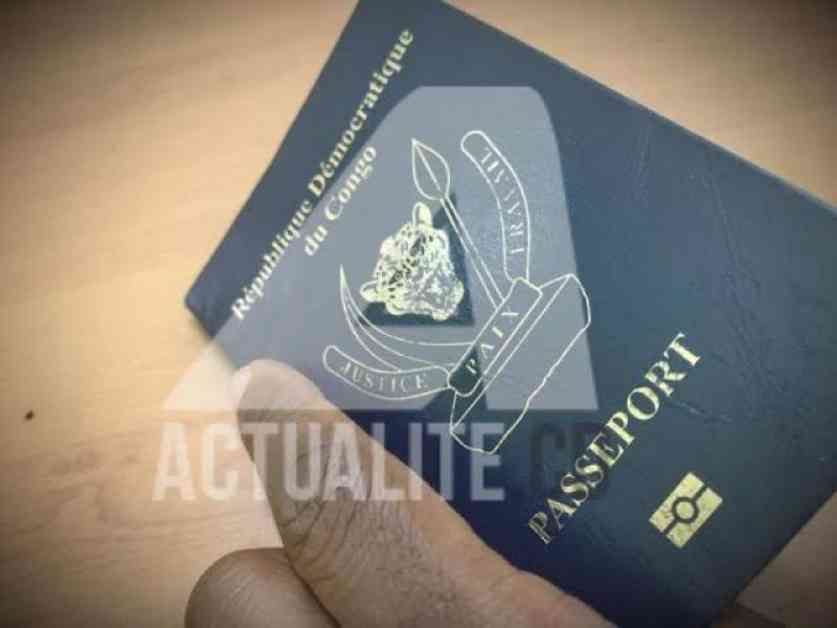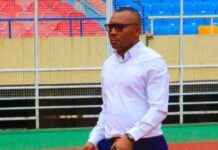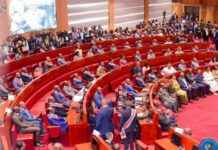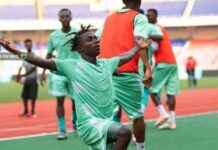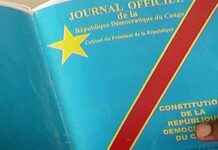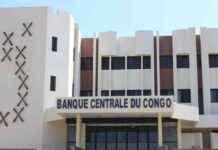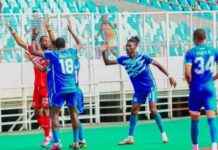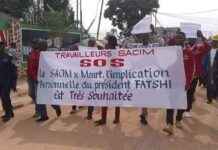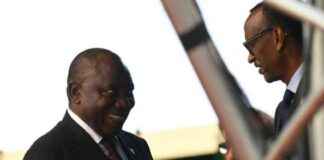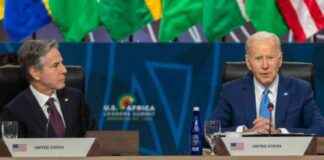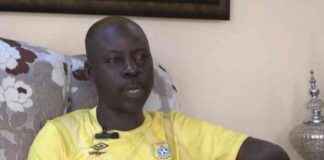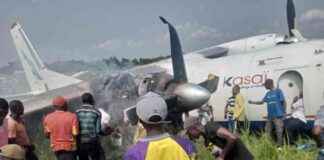The General Directorate of Migration (DGM) has been accused of holding the passport of Monseigneur Donatien Nshole, the Secretary General of the National Episcopal Conference of the Congo (CENCO), for an extended period. However, the DGM, led by Roland Kashantwale and Papy Mbuyi Kanguvu, has refuted these claims made by Archbishop Fulgence Muteba of Lubumbashi, the president of CENCO.
According to the government agency, if there was a need to retrieve Nshole’s passport, it should have been done in Kinshasa, where he resides, rather than in Lubumbashi, the capital of the Haut Katanga province. This has sparked a debate over why Nshole’s passport was allegedly confiscated while Muteba’s passport was not, especially since they are often seen together. Nshole arrived in Kinshasa recently via CAA, while Muteba flew in on Air Congo. A government official overseeing migration flows emphasized that there was no issue with Nshole’s travel, given that he stays in Kinshasa, and any passport retrieval could have been done upon his arrival at N’Djili airport.
The CENCO and the Church of Christ in Congo (ECC) have joined forces once again to advocate for the “Social Pact for Peace and Coexistence in the DRC and the Great Lakes Region.” Both churches have expressed their commitment to mobilize the Congolese population for peace and strengthen social cohesion in the face of persistent insecurity in eastern DRC and for stability in the Great Lakes region.
Leaders of these two churches have highlighted that this pact is the result of a lengthy process initiated by the organizations in response to numerous requests from various stakeholders to encourage the mobilization of all parties involved to achieve effective stability in the region. In recent weeks, they have been traveling across the DRC and certain states in the region to seek regional support for their initiative.
However, this initiative has faced opposition from the political camp of President Félix-Antoine Tshisekedi, who believes that the church should not lead political initiatives and should focus on regional efforts such as the processes in Luanda and Nairobi. During a meeting with his political allies, Tshisekedi reaffirmed his commitment to regional initiatives and expressed a desire to see the outcomes of the consultations led by CENCO-ECC.
With tensions rising and differing perspectives emerging, the situation remains complex and multifaceted, requiring delicate navigation to ensure a balanced approach that considers both political and religious sensitivities. The role of the church in political matters, particularly in conflict resolution and peacebuilding, continues to be a subject of debate and reflection as stakeholders work towards a harmonious and stable future for the DRC and the Great Lakes region.
Expert Insights on the Role of Churches in Conflict Resolution
To provide further context on the involvement of churches in conflict resolution efforts, Dr. Sarah Johnson, a renowned expert in peacebuilding and religious studies, emphasized the historical significance of religious institutions in fostering peace and reconciliation. “Throughout history, churches have played a vital role in mediating conflicts and promoting dialogue among conflicting parties. Their moral authority and outreach capabilities make them valuable partners in peacebuilding initiatives,” Dr. Johnson stated.
She also highlighted the importance of creating inclusive platforms where diverse voices can be heard and consensus can be built. “In a complex and volatile environment like the DRC, it is crucial to engage all stakeholders, including religious leaders, political figures, and community representatives, to ensure that peace efforts are comprehensive and sustainable,” Dr. Johnson added.
As the debate over the church’s involvement in political initiatives continues, experts and stakeholders alike underscore the need for constructive dialogue, mutual respect, and a shared commitment to the common good. Finding common ground and forging partnerships across different sectors will be essential in navigating the complex dynamics of conflict resolution and peacebuilding in the DRC and the Great Lakes region.
